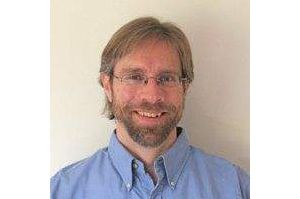Corney is looking forward to leading the Wilderness Center
As the Wilderness Center celebrates 50 years of serving the region as a cutting-edge environmental center, Jeff Corney, its newly appointed executive director, becomes just the third person to assume the lead role.
Corney steps into his new post April 1, and according to TWC Board of Trustees President Andrew Haag, “He will have some big shoes to fill”.
The previous director, Gordon Maupin, held the reigns for 32 years, leading the center through considerable growth and development. The center has been involved in conserving nearly 4,000 acres in the region; started clubs, family and adult educational programming; grown from a staff of three to 14; doubled the size of its interpretive building; and became the first nonprofit group in the United States to start a nature preserve cemetery. “(The position) was advertised nationally,” said TWC marketing director Vicki Shoenfelt. “We had applicants from many states and many with qualified backgrounds.”
Haag was pleased when Corney accepted the position. “We are very fortunate to find Jeff,” he said. “We chose him because of his background in education and because he was running a very similar nature organization in Minnesota.”
Corney joins TWC after spending the last eight years as managing director of the University of Minnesota’s Cedar Creek Ecosystem Science Reserve. After obtaining a bachelor’s degree in biology from Hope College in Michigan, Corney earned a master’s in communication development at Colorado State University and continued his education, receiving master’s and doctoral degrees in natural resources from the Ohio State University. He spent four years as an assistant professor at Lynchburg College and was the first full-time director of the college’s Claytor Nature Study Center.
The Wilderness Center, which now serves a seven-county region, was enticing to Corney. “I accepted this position for a variety of reasons, but not least of which because I am impressed with the depth and quality of programs that TWC delivers, the diversity and innovation of its conservation initiatives, and the obvious commitment and appreciation the community has for this nature center.”
While Haag said he thinks the center will continue to evolve under Corney, who has a focus on nature education, Corney said, “I would like to take some time to truly get to know TWC before I go too far mapping out a vision and plan, but I will say that first, I want to maintain the level of high quality programming that already characterizes TWC, and continue the tradition of land stewardship innovations that has become a hallmark of TWC.”
As the center enters its next 50 years, “I’d like to ensure that this nature center remains relevant and ahead of the curve in terms of its involvement in environmental science education, land conservation, and community engagement,” Corney said.

